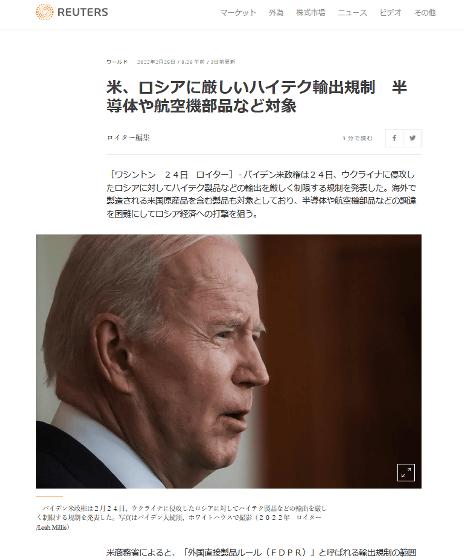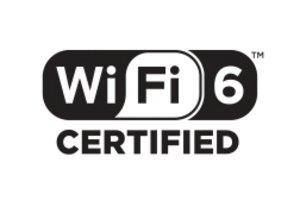On February 24th, the US government announced strict restrictions on the export of high-tech products and other products from Russia, which invaded Ukraine. The photo was taken at President Joe Biden, White House (2022 Reuters / Leah Millis)
Washington 24 (Reuters)-the U.S. government announced on the 24th strict restrictions on exports of high-tech products and other products to Russia that invaded Ukraine. Products including products of American origin made overseas are also targeted, making it difficult to purchase semiconductors and aircraft parts, aimed at hitting the Russian economy. The Commerce Department said it significantly expanded the scope of export controls known as the Foreign Direct products rules (FDPR), obligating companies that manufacture high-tech products overseas, including those of US origin, to obtain permission from the US government when exporting to Russia. The United States Department of Commerce has also added a rule to reject applications for permission in principle. U.S. president Joe Biden stressed that the new export restrictions "will bring immediate and long-term serious costs to the Russian economy." He explained that European Union (EU) member states such as France, Germany and Iraq, as well as the United Kingdom, Canada, Japan, Australia and New Zealand, would take similar measures to maximize effectiveness. He stressed that due to export restrictions imposed by the United States, allies and partners, "We envisage that Russia's high-tech imports will be reduced by more than half." The new regulations increase the number of licensed products that need to be licensed by domestic companies in the United States to supply products to Russia, and increase the number of spare parts for civil aircraft. These applications for permission were also rejected in principle. The move to apply FDPR to products procured by Russian companies is exemplified by Chinese regulation of Huawei technology introduced under Mr Trump's previous administration. "this is the most complex export control ever," said Kevin Wolf, a former senior official at the U.S. Department of Commerce. " "many companies may avoid making mistakes by shunning the deal itself with Russia," he predicted. " The new regulations also add to the de facto embargo list "entity lists" of companies that are already on the list of companies closely linked to the Russian army. Including several aircraft manufacturers. In addition, for companies with close ties to the Russian military, all products, including products of American origin made overseas, require export licenses from the United States. On the other hand, household appliances, varieties of humanitarian purposes and flight safety-related technologies are excluded from the scope of application of export restrictions. Consumer-oriented communications devices, such as mobile phones, are not allowed to be exported unless they are targeted at Russian government officials or specific government companies. On the same day, the US government also announced additional sanctions against Russian banks.
最終更新:ロイター


